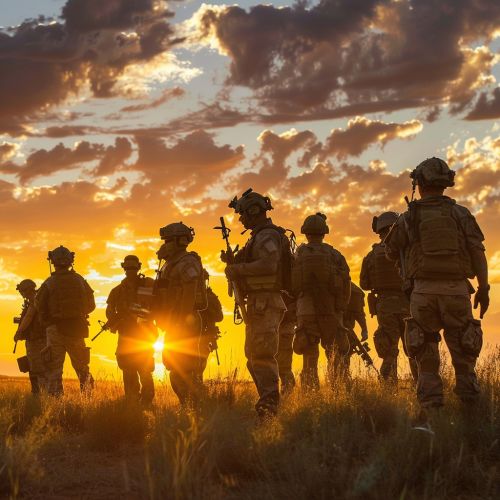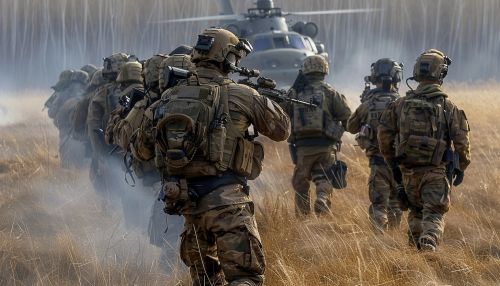Special operations
Overview
Special operations are military, law enforcement, or intelligence operations that are typically clandestine and often high risk. They are designed to achieve significant results against strategic or tactical targets. Special operations are conducted by specially designated, organized, trained, and equipped military and paramilitary forces, employing unconventional and often technologically advanced methods.


History
The concept of special operations dates back to early warfare where select groups of soldiers were trained for specific tactical roles. These units were used for various tasks including reconnaissance, sabotage, and direct action. The use of special operations in warfare evolved over time, with notable advancements during World War II with the creation of units such as the British Commandos and the American OSS.
Types of Special Operations
Special operations can be categorized into several types, each with its own specific focus and methods. These include:
- Direct action: Short-duration strikes and other small-scale offensive actions conducted as a special operation in hostile, denied, or politically sensitive environments.
- Special reconnaissance: These operations are conducted to gather or verify information of strategic or operational significance, employing military capabilities not normally found in conventional forces.
- Unconventional warfare: The support of a foreign insurgency or resistance movement against its government or an occupying power.
- Counter-terrorism: Operations that include the offensive measures taken to prevent, deter, preempt, and respond to terrorism.
- Foreign internal defense: Participation by civilian and military agencies of a government in any of the action programs taken by another government to free and protect its society from subversion, lawlessness, insurgency, terrorism, and other threats to its security.
- Civil affairs: Activities undertaken by military forces to enable military operations and facilitate relations between military forces, governmental and nongovernmental civilian organizations and authorities, and the civilian populace.
- Psychological operations: Operations to convey selected information and indicators to audiences to influence their emotions, motives, objective reasoning, and ultimately the behavior of governments, organizations, groups, and individuals.
Training and Selection
The training and selection for special operations forces are rigorous and demanding, designed to weed out those who cannot meet the high physical and mental demands. The process often includes a series of physically and mentally challenging tests, followed by specialized training in various military skills. The exact nature of the training and selection process varies by country and unit.
Equipment and Technology
Special operations forces often use equipment that is either not used by conventional forces or is used differently by them. This equipment can include specialized weaponry, surveillance and reconnaissance equipment, and unique transportation. The use of advanced technology is a hallmark of special operations, with units often being among the first to field new military technology.
Role in Modern Warfare
In modern warfare, special operations forces have taken on an increasingly prominent role. They are often used for missions that are deemed too risky or complex for conventional forces. This includes missions such as counter-terrorism, hostage rescue, and unconventional warfare. The use of special operations forces in these roles often requires a high degree of secrecy and operational security.
